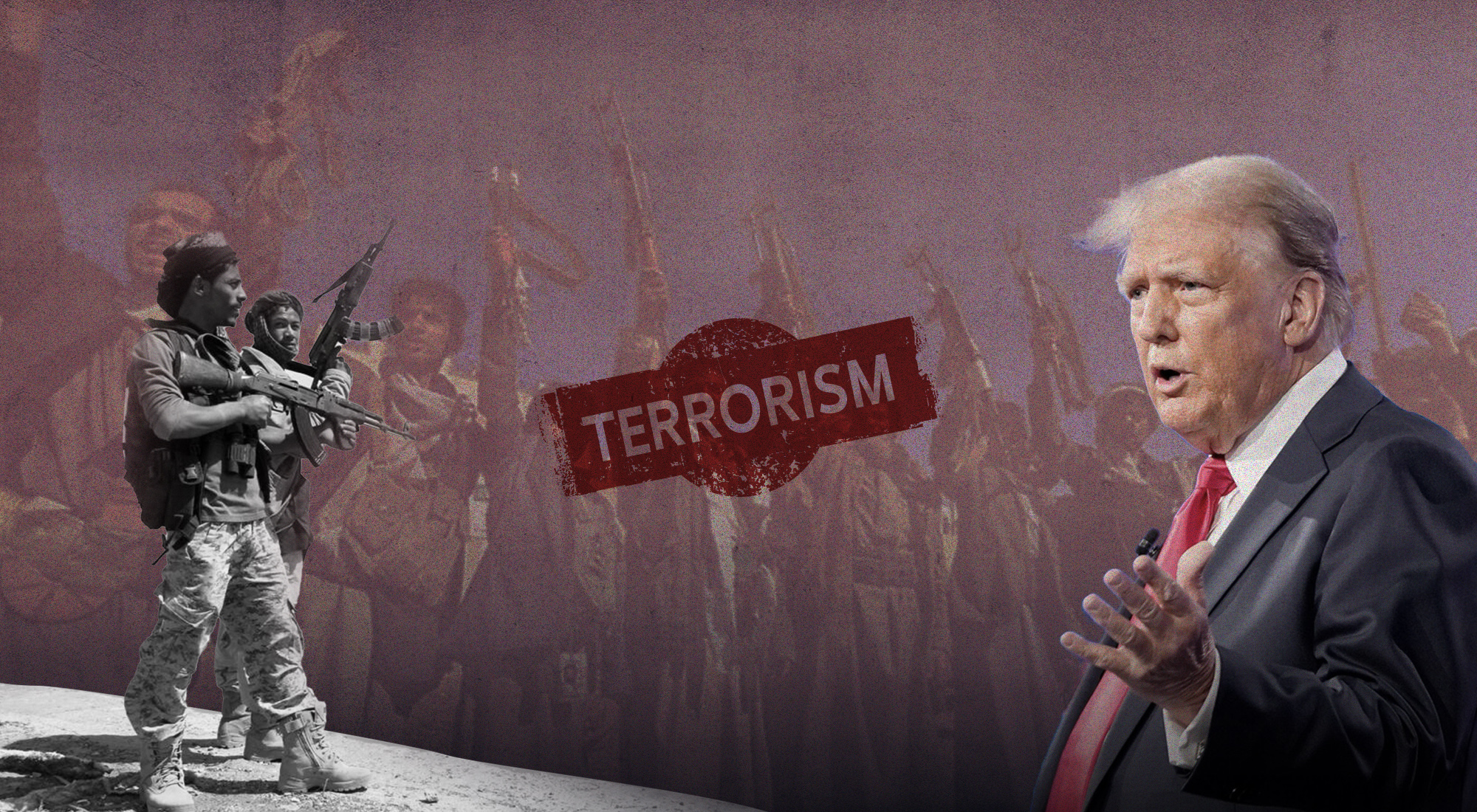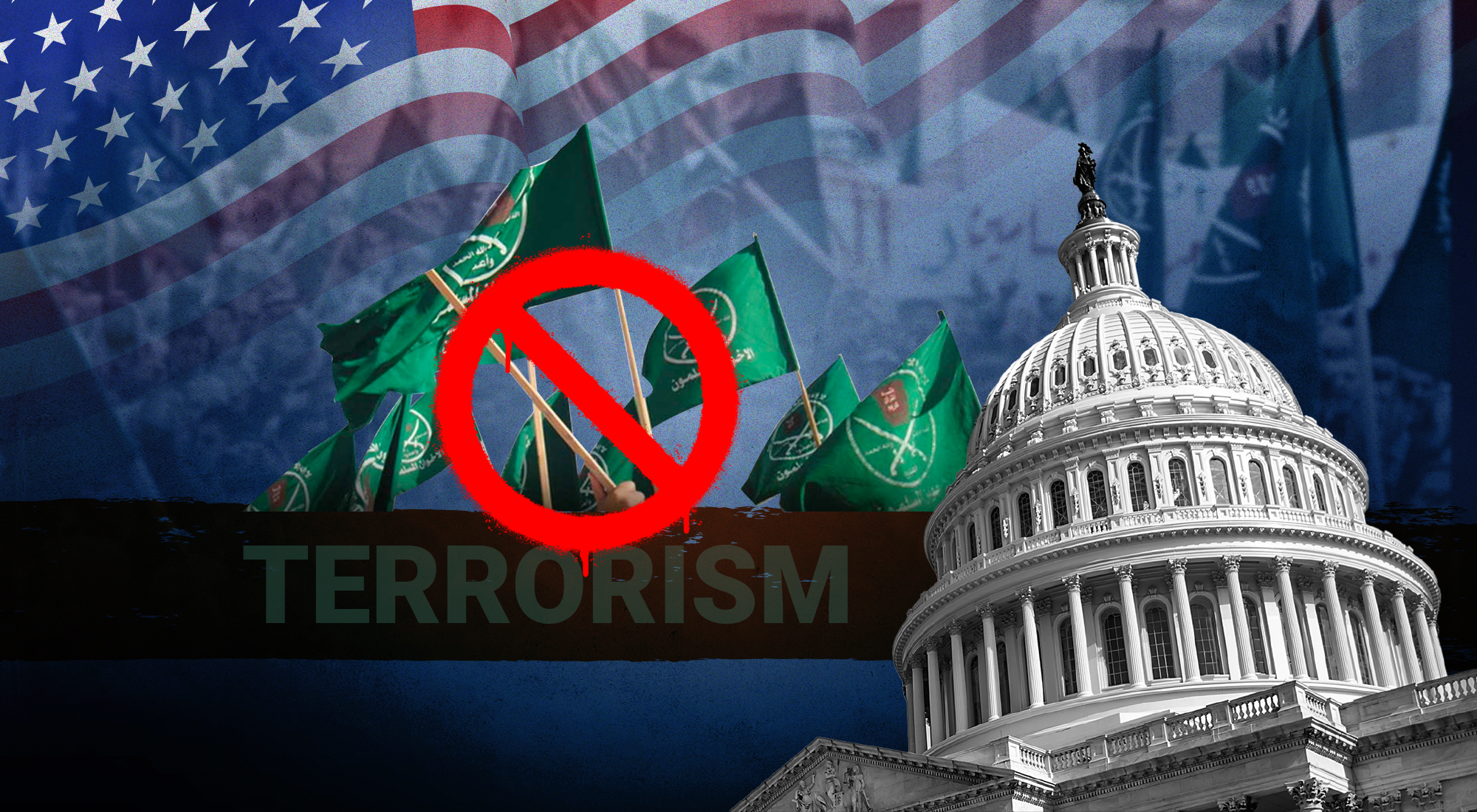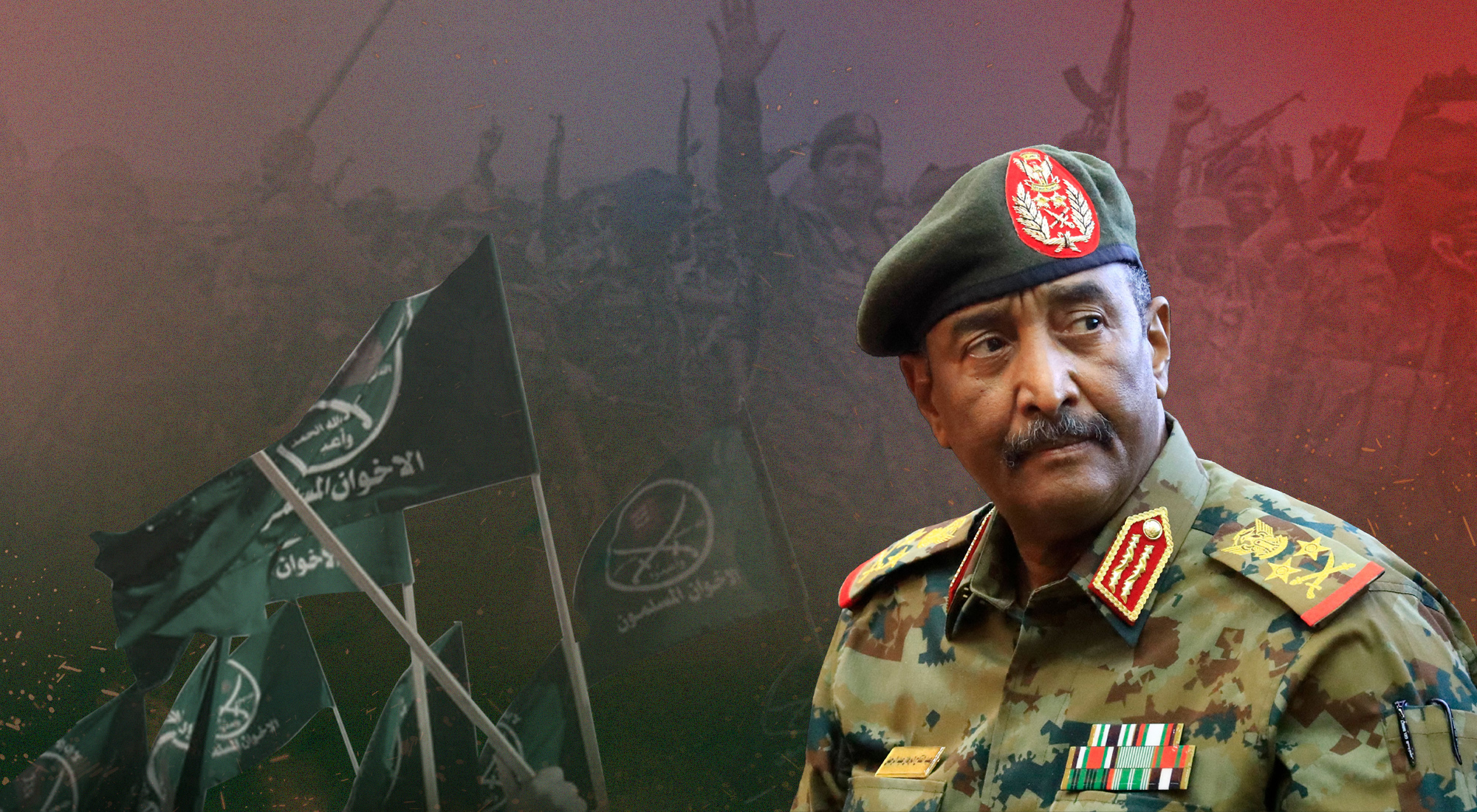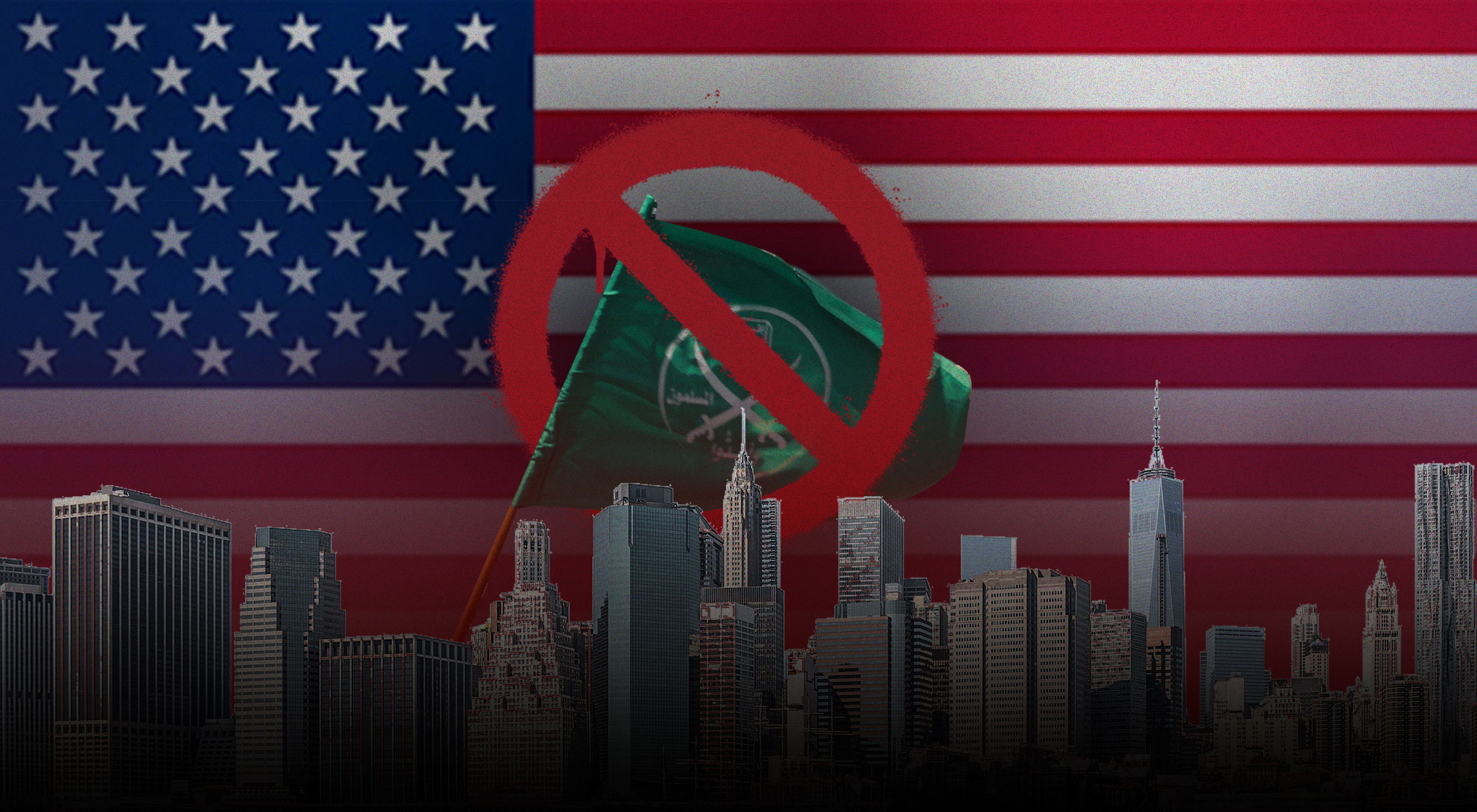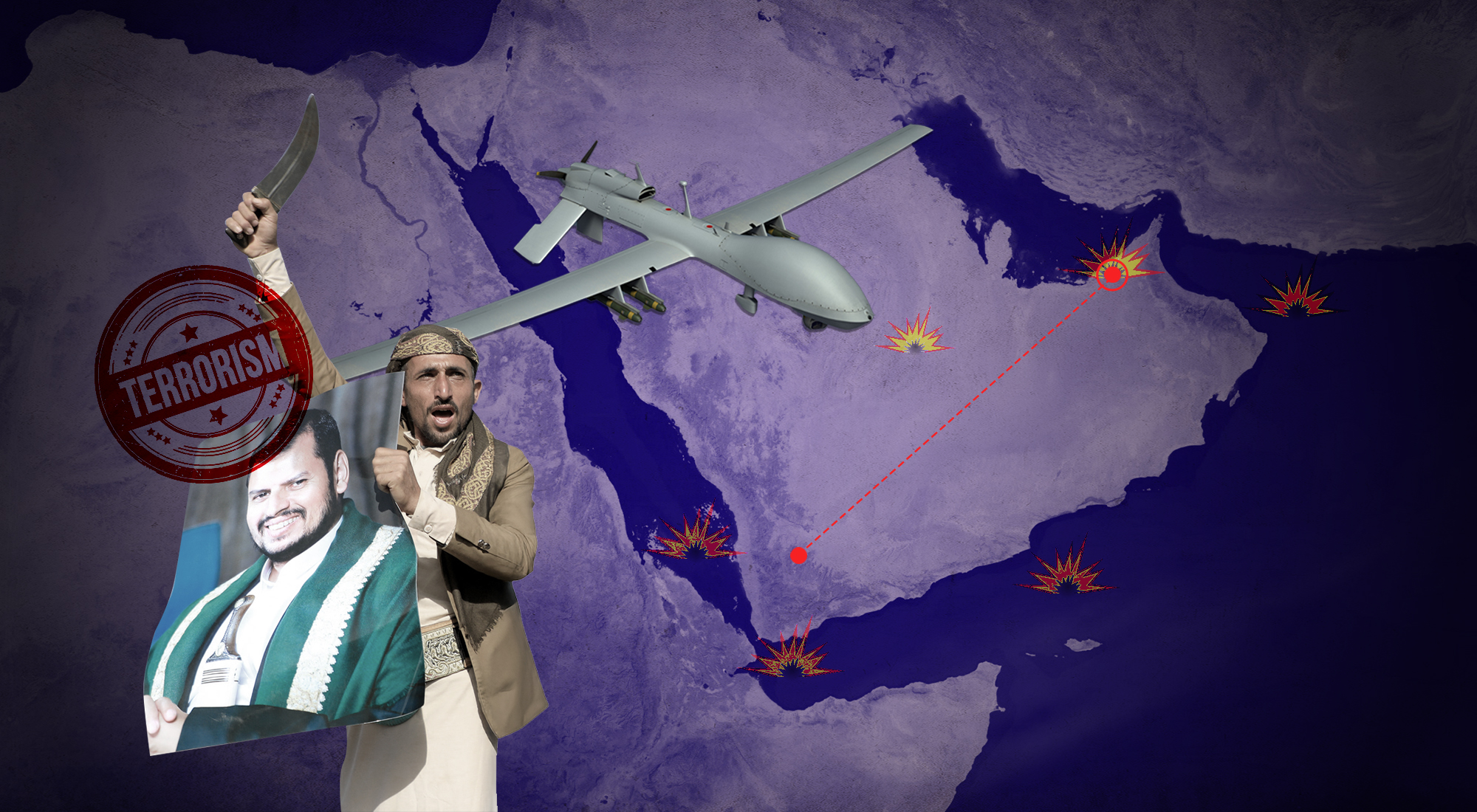In January 2025, President Donald Trump designated Ansar Allah, the Houthi group in Yemen, as a Foreign Terrorist Organization (FTO).[1] It completely reverses U.S. policy by canceling the Biden administration’s 2021 decision to revoke the FTO status. The redesignation of Houthis has drawn a lot of attention worldwide because it could alter the political situation in Yemen, make it more difficult to deliver humanitarian aid there and escalate tensions in the Middle East. It is part of a broader American drive to contain Iranian influence in the region and prevent attacks on Red Sea shipping lanes by the Houthis. The designation has been criticized internationally by humanitarian groups, some U.S. allies, and international organizations, including in a joint statement, claiming it will complicate efforts to help millions of people in Yemen and end the conflict.
Background of the Houthi Movement
The Zaydi Shia-inspired theological revivalist group turned the Houthi movement into the Northern Province of Saada in Yemen during the 1990s.[2] It has grown into a strong political and military force, especially after controlling Sana’a, Yemen’s capital, in 2014. The Houthis gained control of parts of northern and western Yemen in the following years—a long-running war against the internationally recognized government and its allies, a military coalition including Saudi Arabia. Most of the time, the Islamic Revolutionary Guard Corps Quds Force (IRGC-QF) could continue military operations for over a decade by providing them with weapons, drone technology, and so on.[3]
The Houthis are trying to block international sea routes, attack U.S. Navy warships, and seize commercial ships.[4] Shipping in the Red Sea, the world’s busiest maritime corridor, is now in danger due to their most recent actions in the area. The U.S. was urged to redesignate the Houthis as a terrorist organization also after the group fired missiles at Saudi Arabia and the UAE and was suspected of working with Iran to destabilize the region.[5] Swift action was crucial as it would restrict the group’s financial resources, sanction associated entities, and limit its global reach.
Political Implications of the Designation
The U.S. designation of the Houthis as a terrorist group may have some political repercussions. This move could make it harder for diplomats to work together to end the conflict in Yemen. The UN has occasionally facilitated peace talks, working with Saudi Arabia, Oman, and other major regional players to reach a lasting ceasefire.[6] The U.S. action has made it impossible for international organizations to have direct contact with the Houthis as they could be apprehensive of being seen as supporting a terrorist group. It makes it difficult to find a political solution.
The redesignation could change the interaction among countries, especially between the U.S. and countries that attempt to reach peace with the Houthis. Saudi Arabia and the UAE, also part of the coalition intervening in Yemen, have mainly supported the U.S. decision. On the other hand, European countries and humanitarian groups are worried that the designation could make things worse. It could hurt the U.S.’ relationships with its diplomatic allies worldwide, especially those that value helping people or solving problems over punishing them.
The U.S. decision could make things more political in Yemen. The Houthis will likely use this tag to keep up their anti-American rhetoric and incite their supporters against U.S. interference.
But Yemen’s internationally recognized government might see the designation as a reaffirmation of its view that the Houthis are an illegal and dangerous group that needs to be put down militarily. This political climate might make it less likely that everyone would agree on a solution, with the fighting more likely to continue.
Security Implications and Escalation Risks
By designating the Houthis as a terrorist group again, the U.S. has taken steps that will have significant effects on Yemen’s security as well as on maritime safety around the world and the stability of the region. The Houthis are adept at advanced military operations. They have used ballistic missiles and drones to launch terrorist attacks on Saudi and Emirati targets, fought U.S. naval forces, and blocked the Red Sea and the Bab el-Mandeb Strait. The designation will likely make the situation hostile in view of past incidents.
The increase in military operations in Yemen could be a threat to security right away. Recent covert negotiations between the coalition led by Saudi Arabia and the Houthis were meant to end the fighting, but they may now force the alliance to take a more aggressive military stance. If Saudi Arabia sees the U.S. designation as a call to action, it will probably step up military action.
The Red Sea, a vital trade route, raises concerns regarding maritime security. Worries about disruptions to global supply chains have grown as the Houthis have attacked ships several times in the area over the past few years.[7] After the ceasefire between Israel and Hamas, the Houthis claimed they would stop attacking ships at sea. However, shipping companies in the area are being cautious. There is a likelihood that since the U.S. has classified the Houthis as a terrorist group, it could incite them to launch violent attacks on international ships, which would be detrimental to the economy and raise the possibility of direct military conflict between American forces and Houthi fighters.
The region’s counterterrorism planning may be affected by the designation. U.S. counterterrorism operations have been crucial in Yemen for many years, and some U.S. officials see groups like Al-Qaeda in the Arabian Peninsula (AQAP) and ISIS-linked cells as part of the country’s ongoing conflict. Now the biggest challenge facing Washington might be refocusing on the Houthis and getting caught up in a more complex counterterrorism partnership with regional allies.
Regional Implications and Iran’s Role
The U.S. move against the Houthis significantly affects the Middle East, especially Iran’s influence in the region. The group is thought to be crucial to Iran’s overall regional strategy. They are often called Iran’s proxy, along with militants in Iraq and Syria and Hezbollah in Lebanon. The United States says that by calling the Houthis a terrorist group, it wants to weaken Iran’s influence in the region and put more pressure on Tehran’s allies.
The redesignation is consistent with the idea that the Houthis pose a serious security threat to Saudi Arabia and the other Gulf countries. Houthi drone and missile attacks on the Saudi coastline have largely gone unnoticed. This is probably seen by Saudi Arabia as proof that its military operations in Yemen are effective. However, it doesn’t want to make things worse, as it might be difficult to defuse the situation with Iran.
Israeli security officials are wondering why the U.S. took this decision because they are worried about the Houthis’ growing military power and their support for Iran.[8] The Houthis have said that Israeli-affiliated ships in the Red Sea are within their missile range and could be hit.
International Response and Humanitarian Concerns
The U.S. decision to add the Houthi movement of Yemen to the list of FTOs has been met with muted and ambiguous responses from the rest of the world. Concerns and interests often clash because of how power, security, and humanitarian work are organized at the political level. Some of America’s allies, especially those from the Gulf, have spoken out against this action. Other countries worldwide, particularly those in Europe and the United Nations, are worried about how this could affect humanitarian and diplomatic issues.
Saudi Arabia and the UAE, along with other Gulf countries, see the Houthis as a significant security threat as they launched terrorist attacks on them with drones and missiles.[9] The countries supported the United States in keeping up their fight against the Houthis and strengthened their efforts to counter Iranian influence in the region. It implies that the security requirements of the Gulf states are intertwined with U.S. policy. Both groups want steps to be taken to stop the Houthi movement, which they see as a source of instability.
However, many European nations and international groups are concerned that the new designation might worsen the dire humanitarian situation in Yemen. The United Nations says that the Houthis currently control large parts of Yemen, and 40 million Yemenis have waited far too long.[10] This new development will make negotiations even more difficult because there aren’t many ways for negotiators to talk to the Houthis. The main goal in finding a peaceful solution to the problem would be to maintain communication.
With the FTO designation, the risks associated with working with HRGs have been identified and adequately explained.[11] Nearly 20 million Yemenis depend on food aid from other countries. This has led to one of the worst humanitarian crises the world has ever seen. Because of the FTO classification, threats of sanctions, and banking system restrictions, it may be problematic or even illegal for aid groups to work in areas controlled by the Houthis. Due to these issues, it will probably be even more challenging for millions of Yemenis to get food, medicine, and other necessities, putting their lives at risk.
The Western European Union expressed regret about the American decision. They stressed how important it was to come up with political solutions rather than resorting to force, which would only make matters worse. EU officials have emphasized again the importance of taking steps to alleviate poverty and promote peace. This is the latest indication that the U.S. action may make it challenging for international groups to bring the civil war to a peaceful conclusion in the country.
Politics, security, the region, and those in need are all impacted by the U.S.’ decision to reclassify the Houthi movement in Yemen as an FTO. The Yemeni conflict has become more political than diplomatic, making it more challenging for international mediators to advocate for a ceasefire because it is no longer recommended. Humanitarian organizations and European nations oppose the U.S. move because they believe it will prolong the conflict and deepen divisions. Yemen’s politics will become even more polarized as a result of the domestic classification, which will allow the Houthis to strengthen their anti-American stance and claim that military action is the only viable solution. The decision was made during a geopolitical conflict between the United States and Iran. Tehran is charged with providing the Houthis with military assistance outside of Yemen. Iran will likely support the group even more due to this action, further destabilizing the region. In addition, Israel is concerned about the Houthis’ support for Iran and their capacity to produce more weapons.
From a humanitarian perspective, the consequences could be catastrophic. Yemen has one of the worst humanitarian crises in the world, with nearly 20 million people dependent on aid. With Houthis being designated as an FTO, it may be more difficult for humanitarian organizations to operate in Houthi-controlled areas because it may result in financial and legal issues that prevent banks and suppliers from processing transactions involving organizations classified as terrorist organizations.
[1] The White House, “Designation of Ansar Allah as a Foreign Terrorist Organization,” January 22, 2025, https://www.whitehouse.gov/presidential-actions/2025/01/designation-of-ansar-allah-as-a-foreign-terrorist-organization.
[2] Bruce Riedel, “Who Are the Houthis, and Why Are We at War with Them?,” Brookings, December 18, 2017, https://www.brookings.edu/articles/who-are-the-houthis-and-why-are-we-at-war-with-them/.
[3] The White House, “Designation of Ansar Allah as a Foreign Terrorist Organization.”
[4] “Special reports from Reuters journalists worldwide,” Reuters, January 14, 2025. Https://www.reuters.com/investigations/.
[5] Raphael S Cohen, “The Middle East’s Next Aftershocks,” RAND January 2, 2025, https://www.rand.org/pubs/commentary/2025/01/the-middle-easts-next-aftershocks.html.
[6] Jeffrey Sachs and Sybil Fares, “The UN Can End the Middle East Conflict by Welcoming Palestine as a Member,” Al Jazeera, January 10, 2025, https://www.aljazeera.com/opinions/2025/1/10/the-un-can-end-the-middle-east-conflict-by-welcoming-palestine-as-a-member.
[7] Benoit Faucon, Costas Paris, and Saleh Al-Batati, “Shippers Wary of Red Sea Routes Despite Houthi Pledge to End Targeting,” The Wall Street Journal, January 27, 2025, https://www.wsj.com/world/middle-east/shippers-wary-of-red-sea-routes-despite-houthi-pledge-to-end-targeting-4dde35c2.
[8] Patrick Wintour, “Israel Sets out Case to UN Security Council for Full Assault on Yemen’s Houthis,” The Guardian, December 30, 2024, https://www.theguardian.com/world/2024/dec/30/israel-sets-out-case-to-un-security-council-for-full-assault-on-yemens-houthis?Utm.
[9] Reuters and AFP, “UAE Intercepts Houthi Attack, Saudi Arabia Reports Two Injured by Fallen Missile,” DAWN.COM, January 24, 2022, Https://Www.Dawn.Com/News/1671226.
[10] United Nations News, “Houthis undermining regional, international peace efforts in Yemen, says delegate, calling on the security council to pave the way towards political solution,” un.org, January 15, 2025, https://press.un.org/en/2025/sc15964.doc.htm.
[11] Farea Al-Muslimi, “Redesignating the Houthis, a terrorist group is not a bad policy: it is no policy at all,” Chatham House, January 19, 2024, https://www.chathamhouse.org/2024/01/redesignating-houthis-terrorist-group-not-bad-policy-it-no-policy-all.; https://www.linkedin.com/in/farea-al-muslimi-32a6132b. and https://twitter.com/almuslimi.



